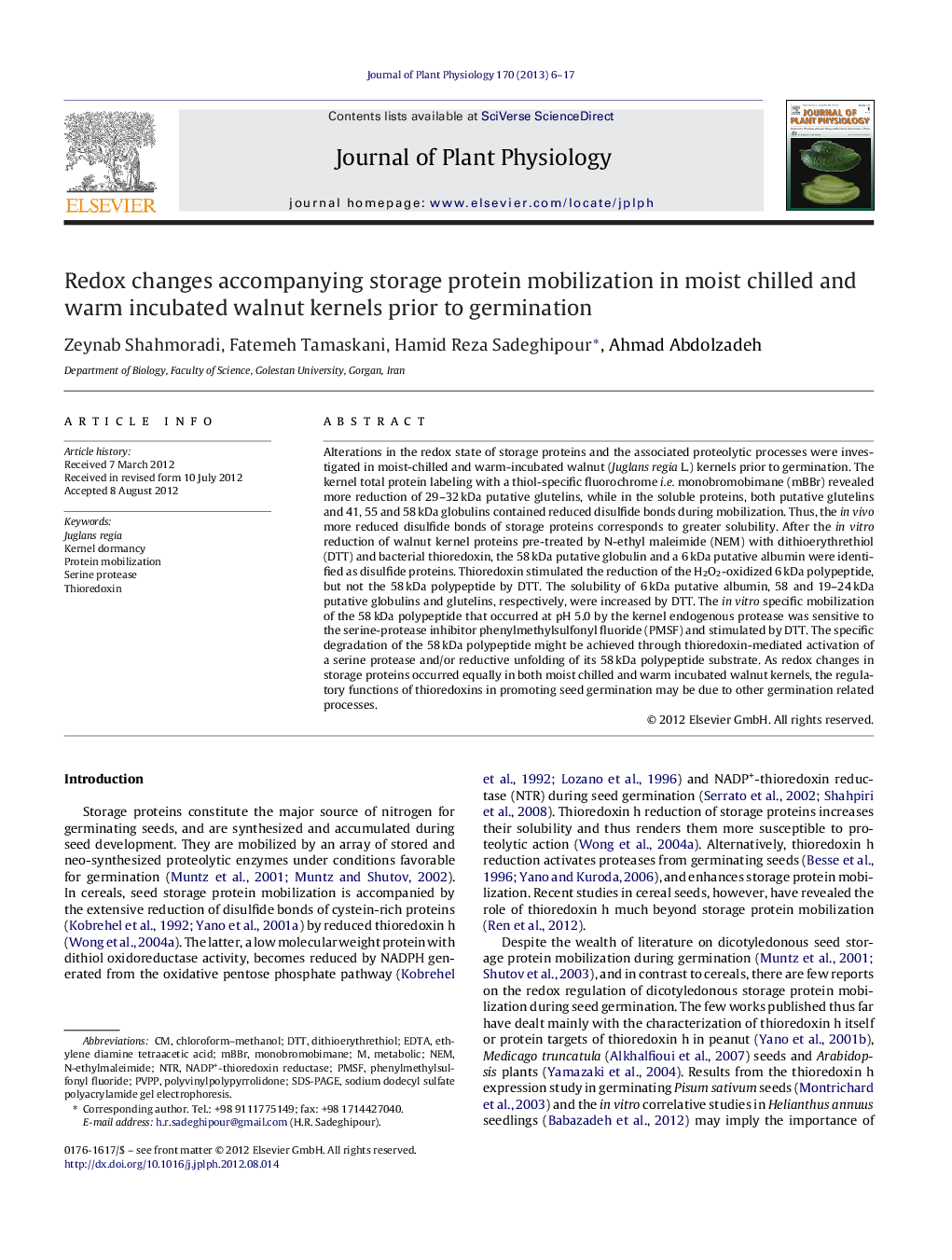| Article ID | Journal | Published Year | Pages | File Type |
|---|---|---|---|---|
| 2056099 | Journal of Plant Physiology | 2013 | 12 Pages |
Alterations in the redox state of storage proteins and the associated proteolytic processes were investigated in moist-chilled and warm-incubated walnut (Juglans regia L.) kernels prior to germination. The kernel total protein labeling with a thiol-specific fluorochrome i.e. monobromobimane (mBBr) revealed more reduction of 29–32 kDa putative glutelins, while in the soluble proteins, both putative glutelins and 41, 55 and 58 kDa globulins contained reduced disulfide bonds during mobilization. Thus, the in vivo more reduced disulfide bonds of storage proteins corresponds to greater solubility. After the in vitro reduction of walnut kernel proteins pre-treated by N-ethyl maleimide (NEM) with dithioerythrethiol (DTT) and bacterial thioredoxin, the 58 kDa putative globulin and a 6 kDa putative albumin were identified as disulfide proteins. Thioredoxin stimulated the reduction of the H2O2-oxidized 6 kDa polypeptide, but not the 58 kDa polypeptide by DTT. The solubility of 6 kDa putative albumin, 58 and 19–24 kDa putative globulins and glutelins, respectively, were increased by DTT. The in vitro specific mobilization of the 58 kDa polypeptide that occurred at pH 5.0 by the kernel endogenous protease was sensitive to the serine-protease inhibitor phenylmethylsulfonyl fluoride (PMSF) and stimulated by DTT. The specific degradation of the 58 kDa polypeptide might be achieved through thioredoxin-mediated activation of a serine protease and/or reductive unfolding of its 58 kDa polypeptide substrate. As redox changes in storage proteins occurred equally in both moist chilled and warm incubated walnut kernels, the regulatory functions of thioredoxins in promoting seed germination may be due to other germination related processes.
